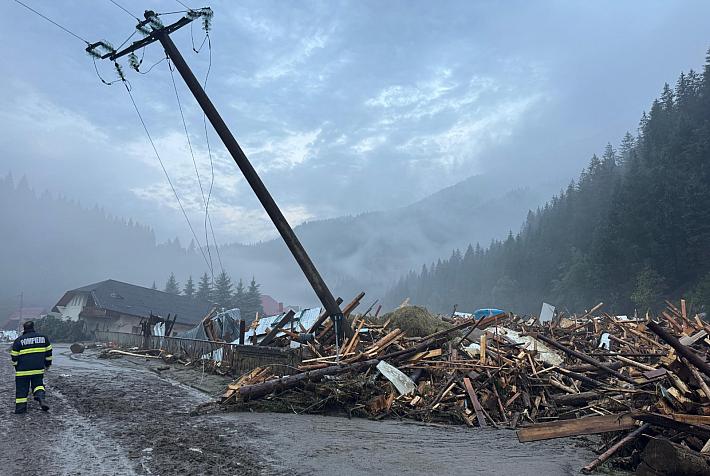World Book Day: Eight books on Romanian history

To mark World Book Day, on April 23, here is a reading list of books on Romanian history, more distant or recent, written by specialists or history-makers themselves.
A Concise History of Romania by Keith Hitchins
A professor of history at the University of Illinois, Keith Hitchins has focused in his work on Romania and South Eastern Europe. He has written several books on Romania, after numerous research trips in the country, where he is also an honorary member of the Romanian Academy.
This book covers the period spanning from the Roman conquest of Dacia to the present, and maps the country’s evolution at various stages in history, while placing it in the context of European politics and of various economic and social developments.
Hitchins has also written a two-volume history of modern Romania, covering the period from 1774 to 1947. His other books include The Romanian National Movement in Transylvania, 1780–1849 (1969) and Andreiu Șaguna and the Romanians of Transylvania, 1846–1873 (1977).
Publisher: Cambridge University Press (2014). An excerpt from the book is available here.
The Last Romantic - A Biography of Queen Marie of Romania by Hannah Pakula
One of the most beloved members of the Romanian royal family, Queen Marie was the granddaughter of Queen Victoria, and the daughter of Prince Alfred, Duke of Edinburgh and Grand Duchess Maria Alexandrovna of Russia, Queen Marie was the wife of King Ferdinand I. She was the last queen of Romania and the grandmother of the country’s last king, Mihai I.
A supporter of Romania joining the Entente during the First World War, she worked, alongside her daughters, as a nurse in military hospitals during the conflict, caring for the wounded soldiers. After the Great Union of 1989, she pushed for the international recognition of the enlarged Romania.
In this biography, the author explores her early years in Romania as well as the period of the World War I, when the queen’s influence grew significantly.
Publisher: Simon & Schuster (1985).
Operation Autonomous: With S.O.E. in Wartime Romania by Ivor Porter
This is the account of a clandestine operation in Romania during the Second World War, told by one of the participants, a captain at the time. In December 1943, Porter, Lt. Colonel Alfred Gardyne de Chastelain, a Special Operations Executive (SOE) officer, and captain Silviu Mețianu, a Romanian who had emigrated to Great Britain, were parachuted into Romania to instigate an anti-Nazi resistance in a country that had joined the Axis powers. It was not Porter’s first time in Romania, as he had been in the country beginning with 1939 as a teacher of English in an “exotic” Bucharest.
Publisher: Chatto & Windus (1989). An excerpt is available here.
Michael of Romania: the King and the Country by Ivor Porter
Porter also wrote a biography of King Michael, who passed away at the end of 2017. The monarch, who played an important role during the Second World War when he ousted pro-Nazi Marshall Ion Antonescu and switched to the side of the Allies, was forced to abdicate in 1947. In his long exile, he worked various jobs to support his family, while keeping in touch with the Romanian diaspora. After the 1989 Revolution, he attempted to visit the country several times but was only allowed in 1992, when, in Bucharest, more than one million people turned up to see him. His Romanian citizenship was returned to him only in 1996, after Emil Constantinescu was elected president of the country. The volume is based on sources such as interviews with the king and other members of the Romanian royal family, the royal archives or the unpublished diaries of Queen Elena, the mother of King Michael.
Publisher: Sutton Publishing; 1st edition edition (2005). Available here.
The Holocaust in Romania by Radu Ioanid
Examining a less-talked about moment in Romania’s history, the book looks at the policies of the regime of Ion Antonescu, a prime minister of Romania between 1940 and 1944. It also covers the persecution of the Gypsies, another less explored topic, which was captured in film, in reference to a previous period, by Radu Jude, in his 2015 Aferim! Jude also looked at Romania’s involvement in the Holocaust in his most recent film I Do Not Care If We Go Down in History as Barbarians. The book comes with a forward by Elie Wiesel, the Romanian-born Holocaust survivor and 1986 Nobel Peace Prize winner.
Publisher: Ivan R. Dee (2008). A preview is available here.
Journal 1935-1944: The Fascist Years by Mihail Sebastian
Born into a Jewish family in Brăila, Mihail Sebastian was one of the most important Romanian authors of the interwar period. A playwright, essayist, and novelist, he passed away in an accident in 1945, leaving behind, among other works, his journal. Kept for a period of ten years, it chronicles the emergence of anti-Jewish sentiment in the country, while providing a testimony of the political and artistic life in Romania in between the two world wars. In Romania, the journal was published only in 1996. It “deserves to be on the same shelf as Anne Frank’s Diary and to find as huge a readership,” novelist Philip Roth has said of it.
Publisher: Rowman & Littlefield Publishers (2012). A preview is available here.
Romania Under Communist Rule by Dennis Deletant
A Visiting Ion Ratiu Professor of Romanian Studies at the Georgetown University in Washington DC, Deletant traveled and studied in Romania before 1988. After the 1989 Revolution he returned to the country as a member of the board of the British Government’s ‘Know-How Fund for Central and Eastern Europe’. He was involved in the organization’s work in Romania and the Republic of Moldova until 1999.
The book investigates the history of communism in Romania, from the founding of the Communist Party in 1921 to the 1989 Revolution.
Deletant's other books on Romania include Ceauşescu and the Securitate: Coercion and Dissent in Romania, 1965-89; Communist Terror in Romania: Gheorghiu-Dej and the Police State, 1948-65; Hitler’s Forgotten Ally. Ion Antonescu and his Regime, Romania, 1940-1944; and British Clandestine Activities in Romania during the Second World War.
Publisher: Center for Romanian Studies (1999). An excerpt from the book is available here.
Bucharest Diary: Romania's Journey from Darkness to Light by Alfred Moses
For an insight into Romania’s post-Revolutionary years the book of former US Ambassador to Bucharest Alfred Moses is the right read. The book covers Moses’s experience in Romania prior to 1989, when he came to Bucharest with the American Jewish Committee and worked to help members of the Jewish community who were looking to emigrate. Encounters with the late communist dictator Nicolae Ceausescu feature in the book, alongside accounts of the life of deprivation most Romanians were experiencing at the time. Moses later served as U.S. ambassador to the country, from 1994 to 1997, and he shares his insights into the period when Romania was transitioning to a free economy and was experiencing its first years of democracy.
Publisher: Brookings Institution Press (2018). An excerpt is available here.
editor@romania-insider.com



















